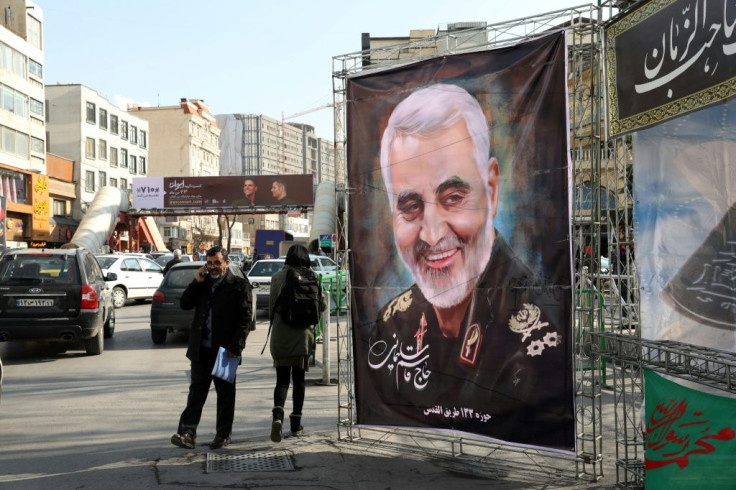US - Iran Conflict: Senate Votes To Limit President's Ability To Order Military Action

KEY POINTS
- Iranian Gen. Qassem Soleimani died in a Jan. 3 targeted drone strike outside Baghdad airport
- Lawmakers were outraged Trump took the action without informing congressional leaders ahead of the strike
- The strike outraged Iraqis, who have demanded the remaining 5,000 U.S. troops in the country leave
The U.S. Senate voted Thursday to limit President Trump’s ability to order military action against Iran without congressional approval in the wake of a targeted drone strike that killed an Iranian general in Iraq.
The Senate voted 55-45, with eight Republicans voting with Democrats. The measure now goes back to the House.
Trump justified his action based on the congressional resolution in 2002 that allowed former President George W. Bush to deal with Iraq. Trump tried to cajole Republicans to vote against the limitations but the effort failed.
In pushing for adoption, sponsor Sen. Tim Kaine, D-Va., said it should be up to the Congress, not the president alone, to decide whether to go to war.
"The resolution is about a level of deliberation to match the level of sacrifice we expect" of our soldiers, Kaine said.
Sen. Jim Risch, R-Idaho, said Trump has used much more restraint than the previous administration when it comes to unilateral military action.
"He has not used power willy nilly. He has used it very sparingly," Risch said, characterizing the measure as an offer of appeasement to Iran. He cautioned Iran not to see Thursday's action as capitulation because "make no mistake," the U.S. will defend itself.
Iranian Gen. Qassem Soleimani, who headed the elite Quds Force, died Jan. 3 in an attack near Baghdad’s airport to prevent what the administration said was an imminent attack against U.S. interests. The strike was ordered without advance notice to congressional leaders, the so-called Gang of Eight, who normally receive briefings ahead of such actions.
Iran retaliated for the assassination with missile strikes against two Iraqi bases housing U.S. troops that left more than 100 U.S. troops with traumatic brain injuries. Trump, who tightened sanctions against Iran in the wake of the attack, initially claimed there had been no casualties and later said the injuries were “not very serious.”
Democrats and some Republicans decried Trump’s actions, fearing they would lead to all-out war with Iran. Tensions have been racheting up since the president pulled the United States out of the nuclear deal that was supposed to temper Iran’s nuclear program. Since then, Iran has increased its uranium enrichment efforts, ignoring the limits in the crippled deal.
Since Soleimani’s death, Hezbollah, the Iran-backed Lebanese organization, has begun coordinating with Iraqi militia leaders to fill the void and expand its influence in the region, Reuters reported. Quoting sources, Reuters said the meetings have included populist cleric Moqtada al-Sadr, who has spearheaded opposition to the U.S. presence.
The U.S. still has 5,000 troops in Iraq. Soleimani’s death sparked calls from Iraqi officials for U.S. troops to leave. Trump, however, has refused to pull them out, saying the U.S. is not ready to leave yet.
© Copyright IBTimes 2025. All rights reserved.






















